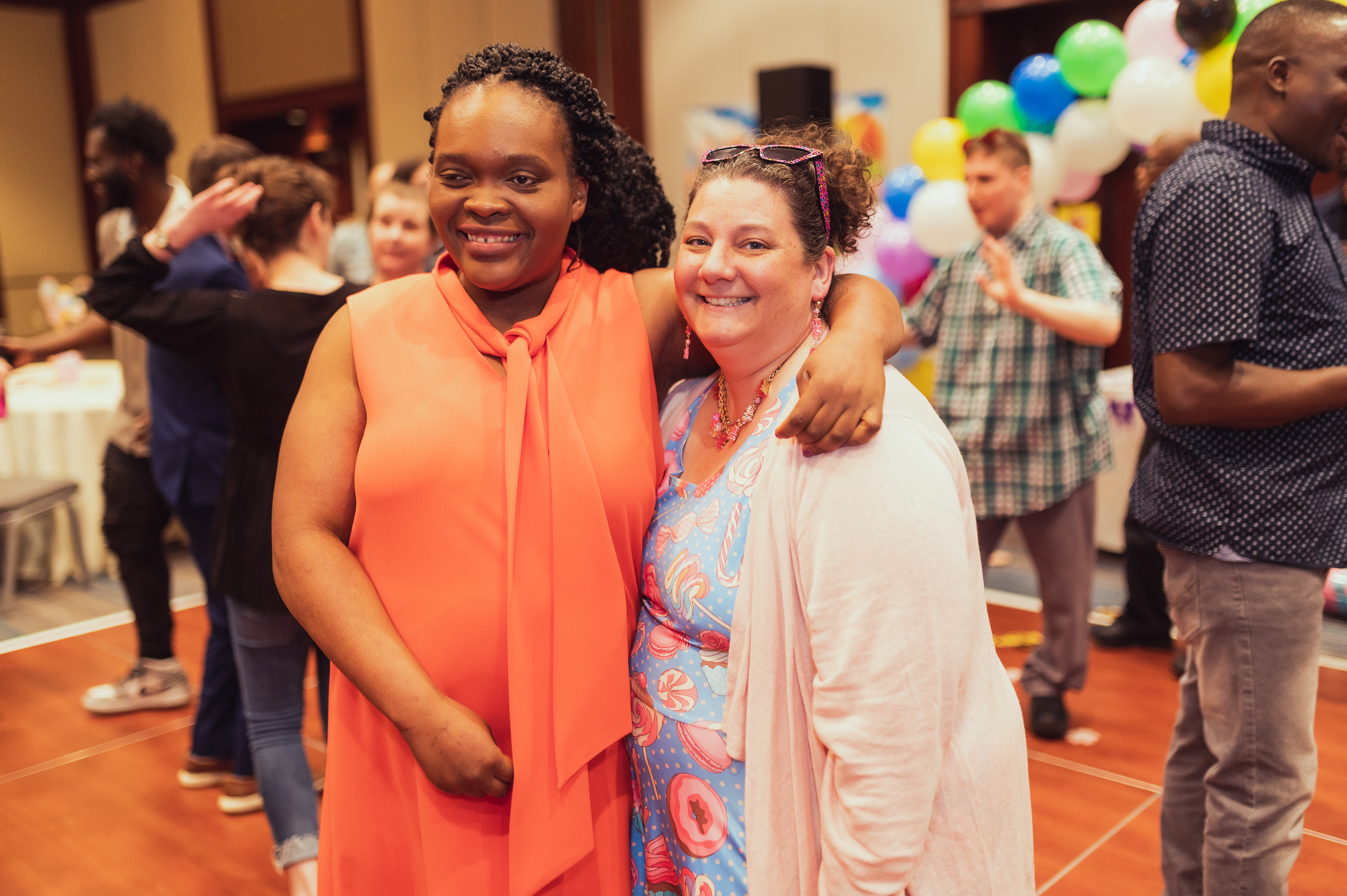For Nikki Bryant and Sydney Mountzouris, no two days at The Guild are alike.
“Some days, I spend a lot of time in the residences, working with staff and providing training, and others I spend in my office making materials and plans for individuals I work with,” said Sydney.
As members of The Guild’s adult behavioral services team, Nikki and Sydney use the principles of Applied Behavior Analysis (ABA) and Positive Behavior Supports (PBS) to assist adults with intellectual and developmental disabilities at The Guild in engaging in socially adaptive, safe behavior.
"I view our roles as setting up supports so the individuals we work with can be engaged members of their community at the level of independence that makes sense for them,” said Nikki.
Part of this work includes identifying replacement behaviors individuals can engage in to meet their needs safely. Nikki explains that teaching these behaviors often involves discussing how healthy coping skills, like going for a walk or working on a creative activity, can be used to channel emotions.
Both Sydney and Nikki point to the importance of championing the individuality of adults in The Guild’s programs. At times, this means focusing on environmental modifications rather than behavioral change to support individuals in living their lives to the fullest.
“Since everyone we work with is over 22, the behaviors they’re engaging in are not typically new. As adult services providers, we have an opportunity to accept that some behaviors are part of who these individuals are, so we ask ourselves how we can support the environment to set them up for success,” said Sydney.
Many adults with The Guild attend day programs for people with intellectual disabilities. However, given staff shortages in the sector, some remain on waitlists. In addition to their behavioral work, Nikki and Sydney play a large role in creating a meaningful day for residents that mirrors the schedule of a traditional day program. They’ve put together folders of enriching activities and itineraries for community-based experiences that the Guild residential staff use to structure each day.
Throughout their responsibilities, Nikki and Sydney support individuals experiencing transitions and significant life events that are not uncommon in The Guild’s adult program.
“Whether it’s moving to a new residence or grappling with the loss of a loved one, we provide support, care, and consistency depending on each individual’s needs,” said Nikki. “We collaborate across departments to provide adults with the tools they need to cope with change whenever it arises.”
For more information about The Guild’s adult behavior services program, visit the adult ABA services page on our website.


